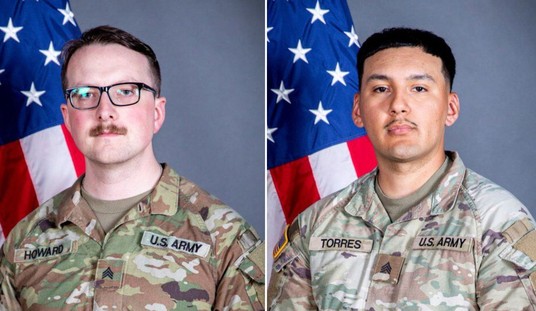The Washington Post questions the spin that Barack Obama and the media have put on the response from Iraq to Obama’s proposals for withdrawal, and at the same time questions either the intelligence or the honesty of the Democratic nominee on the surge. In its lead editorial, the Post points out that Iraq in fact fears a rapid withdrawal of US forces, and that Obama’s understanding of the region leaves something to be desired:
Iraqi Prime Minister Nouri al-Maliki, who has a history of tailoring his public statements for political purposes, made headlines by saying he would support a withdrawal of American forces by 2010. But an Iraqi government statement made clear that Mr. Maliki’s timetable would extend at least seven months beyond Mr. Obama’s. More significant, it would be “a timetable which Iraqis set” — not the Washington-imposed schedule that Mr. Obama has in mind. It would also be conditioned on the readiness of Iraqi forces, the same linkage that Gen. Petraeus seeks. As Mr. Obama put it, Mr. Maliki “wants some flexibility in terms of how that’s carried out.”
Other Iraqi leaders were more directly critical. As Mr. Obama acknowledged, Sunni leaders in Anbar province told him that American troops are essential to maintaining the peace among Iraq’s rival sects and said they were worried about a rapid drawdown.
All of these points have been made repeatedly by John McCain, and apparently by Petraeus to Obama in their meeting. The 16-month timeframe won’t work logistically in any case, but Obama clings to it regardless. Obama claims that Iraq is still a distraction, and that our attention should turn to Afghanistan instead. The Post scoffs at the notion that Iraq is not strategically important to the US:
Yet Mr. Obama’s account of his strategic vision remains eccentric. He insists that Afghanistan is “the central front” for the United States, along with the border areas of Pakistan. But there are no known al-Qaeda bases in Afghanistan, and any additional U.S. forces sent there would not be able to operate in the Pakistani territories where Osama bin Laden is headquartered. While the United States has an interest in preventing the resurgence of the Afghan Taliban, the country’s strategic importance pales beside that of Iraq, which lies at the geopolitical center of the Middle East and contains some of the world’s largest oil reserves. If Mr. Obama’s antiwar stance has blinded him to those realities, that could prove far more debilitating to him as president than any particular timetable.
Exactly. The “distraction” argument ignores a great deal of obvious reality. Iraq has massive oil reserves, which in the wrong hands could provide far more funding to terrorists than the Afghan opium crops do now, and with much less international resistance. Iraq’s central location in southwest Asia, as well as its port of Umm Qasr, make it a highly strategic nation in commerce, politics, and especially in containing Iranian hegemony. A strong and democratic Iraq makes Iran less able to extend its power in the region.
Afghanistan, however, isn’t the non-entity that the Post somewhat implies here, either. We need more resources there precisely because we can’t invade Pakistan. We have to work mostly on the defensive for the next several years while we get Afghanistan’s security forces strong enough to defend themselves, just as we did in Iraq. Afghanistan could also be critical for Iranian containment, if we can strengthen them enough. That’s why Afghanistan should be an international project — and why we should be pressing the same allies among whom Obama’s busy holding political rallies for more resources.
We shouldn’t scoff at redeploying resources from Iraq to Afghanistan, but we should do so in a way that enhances the security of both nations rather than worrying about enhancing the political prospects of one particular presidential candidate.







Join the conversation as a VIP Member